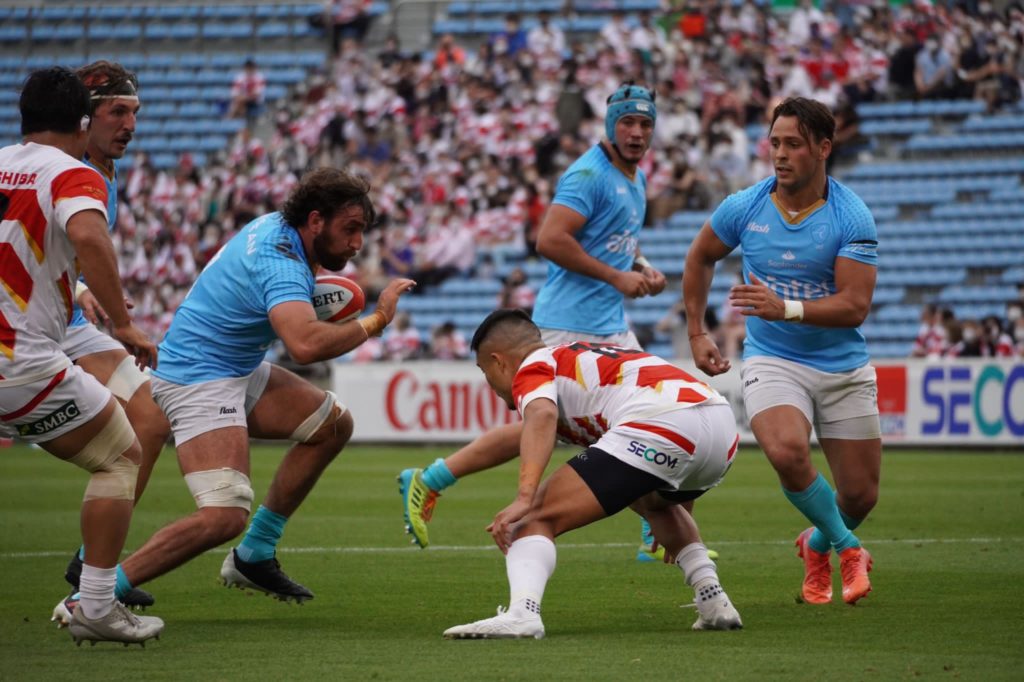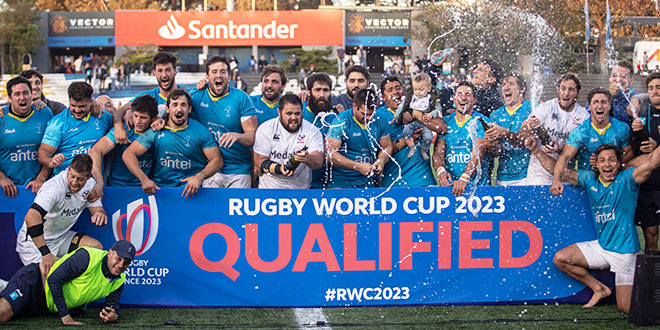Canada and the USA will return to the Pacific Nations Cup in 2024. South America will not be involved. World Rugby sought an Americas-Pacific competition wherein Chile and Uruguay would feature alongside Canada, the USA, Japan, Fiji, Samoa and Tonga. South America declined.
World Rugby announced the Pacific Nations Cup as being expanded. This is not accurate; neither Canada nor the USA nor Japan are expansionist teams. The tournament is not an innovation; rather, it is World Rugby doing again what has been done before.
Canada and the USA joined Japan, Fiji, Samoa and Tonga in prior editions of the Pacific Nations Cup. The same six competed in the same competition in 2019, 2015 and 2014. In 2013 the tournament involved five because Samoa preferred to play in South Africa in a four team tournament which also involved Italy and Scotland.
World Rugby wanted the Pacific Nations Cup to include Chile and Uruguay. Sudamérica Rugby decided it was better not to play for two reasons; both of which arguably justify the decision on their own.
The first reason is that the Pacific Nations Cup will be outside of the player release window. This makes the tournament a non-starter as teams will not have complete access to their players. Bayonne would not be required to release Manuel Leindekar, Colorno would be required to release Diego Arbelo and Germán Kessler would also be off-limits. Moreover, captain Andrés Vilaseca would not be involved nor would the most-known player Santiago Arata.
Uruguay have toured outside release windows in the past. The June 2022 tour to Japan is a case in point. Los Teros were notably lifted in their November tour to Europe compared to their two matches in Asia’s far east.

The second reason is longevity. The Pacific Nations Cup is slated to be a competition involving six teams. Canada, USA and Japan will be the north while Fiji, Samoa and Tonga will be the south. This is the structure for 2024. What about beyond that? Are there guarantees that this tournament will continue? No. In fact, Japan and Fiji will join the Rugby Championship in 2026.
What appears to be a gain for Canada and the USA may simply be frustration. It will mean the Eagles play without David Ainu’u, Greg Peterson, Ruben de Haas and AJ MacGinty and Canada do so without Matt Tierney and Matt Beukeboom with Tyler Ardron and Tyler Duguid out even if they were to make themselves available.
In connection with the first and second reasons is a third. It remains to be seen whether the Pacific Nations Cup will retain test match status moving forward. Uruguay played host to the Americas Pacific Challenge in 2017 and 2018. It was outside of the player release window. The competitors were Uruguay XV, Argentina XV, Tonga A, Canada A, USA Selects and Samoa A. In 2016 the Fiji Warriors competed in place of Tonga A.
South America’s decision comes several years after North America voted for Bill Beaumont instead of the Americas candidate, Agustín Pichot in the World Rugby election. The outcome was catastrophic for Canada and the USA. The Americas Rugby Championship (ARC) ended and neither qualified for Rugby World Cup 2023.

The ARC will not be returning. The Pacific Nations Cup appears to be the final nail in the coffin. South America is not isolated; to the contrary, relations are very strong with Tier 2 unions of note in Europe. As such there is room for some variety of a Copa Latina. There is room for Uruguay and Chile to have increased opportunities against the likes of Spain, Portugal, Romania. Sudamérica Rugby also has strong relations are also strong with Georgia and Namibia.
Uruguay and Chile start the new Rugby World Cup cycle without confirmed fixtures but with enhanced reputations. If Uruguay decide they are ready to host Los Pumas that match will happen in Montevideo and will happen every year.
The post South America Say No to Pacific Nations Cup appeared first on Americas Rugby News.



0 Comments